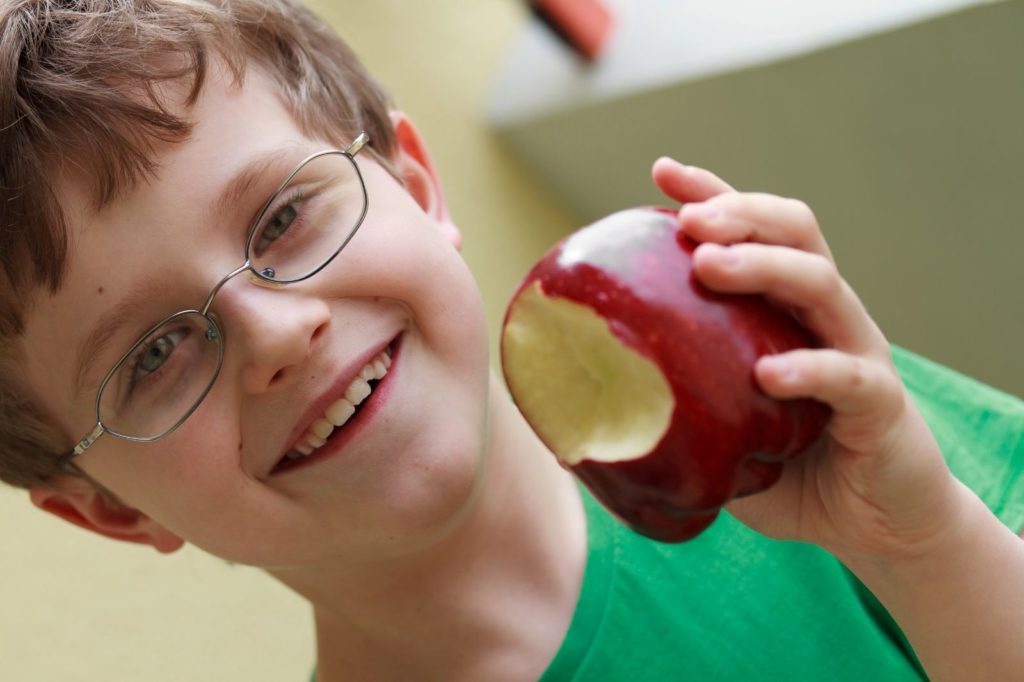“Diane” is the adoptive mother of three girls who experienced severe trauma as toddlers and suffered serious emotional and behavioral disorders as a result. After months of treatment and care, her pre-teens are doing well but Diane is vigilant about keeping them safe and healthy.
She writes: “Exercise, as we know, is great for not only physical health, but also for mental and family health, too. We have adopted the practice of going on nature hikes, fishing, bike riding and even entering some 5ks to bring physical health and family time together. Aside from the obvious benefits, sometimes, when the kids are out of the natural environment (school and home), they tend to open up more about the things on their mind. And without the distractions of electronics and such, they can ‘hear’ us better and also process their own thoughts and feelings more easily.”
Habits and life routines affect our mental health and well-being. So what can we do to create a better mental health our children?
January is Mental Wellness Month and setting aside time for a “mental health screening” reminds us that being aware of mental health is an important part of caring for ourselves and our children. There are multiple lifestyle factors that have been identified by research to support overall mental health. The following is a list of important lifestyle variables taken from research that affect mental health with some related questions to reflect on:
Physical Activity
- Are there regular times for exercise built into your schedule?
- How often do you or your child engage in activities that require physical effort?
- For more information on physical activity and guidelines, click here.
Time in Nature
- Do you and your family members spend time in natural sunlight, away from screens and electronics?
- Are there regular opportunities to get fresh air in a natural setting such as a park or forest preserve?
- Explore the fun with the help of San Antonio’s Parks and Recreation Department.
- If you are interested in programs regarding nature and science within the parks system please click here.
Diet
- Does your family have a routine where family members are eating a balanced diet?
- Are the number of calories you or your children consume balanced with what is needed given your physical output and body type?
- How much sugar, caffeine, artificial or processed foods do you or your child consume?
- For more information on a healthy and balanced diet, click here.
Sleep
- How many hours of restful sleep do you or your children get per night?
- Do you and your children have a regular and stable sleep routine that supports true rest?
- For a list of suggested hours of sleep based on age, click here.
Fun
- How and in what ways do you and your children play?
- Are there regular times where laughter, excitement, and enjoyable experiences take place?
- If not, why not and how might you alter your routines and activities to make time for carefree fun and play?
Relationships
- Do you and your family members engage in supportive relationships that are defined by trust and openness while maintaining appropriate boundaries?
- Do you and your children regularly spend time with friends in person?
- Does your family have an adequate support system?
Community/Spiritual Involvement
- How often does your family attend community-related events or spiritually oriented activities?
- Are there times that your family engages in activities that contribute to the larger good of your community and serve others?
- Do you and your children feel a connection with the larger community and have a greater sense of meaning and purpose?
During this month, take an assessment of how your family is supporting mental health through therapeutic lifestyle choices. Make it a priority to ensure that your routines integrate physical activity, a healthy diet, regular fun, time in nature, ongoing supportive relationships, and connection with the community. While identifying mental health conditions and symptoms is essential, making therapeutic lifestyle choices can improve our quality of life while helping prevent mental health problems for us and our children.
Learning together,
Dr. Josh Essery
In case of a medical emergency, please call 911. For a child’s mental health emergency (ages 3 to 17), call Clarity Child Guidance Center at 210-582-6412. Our crisis service department accepts walk-ins 24/7. You can find directions to our campus here. Please do not hesitate to reach out to us. We are here to help!










